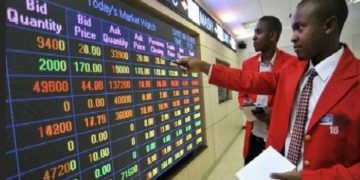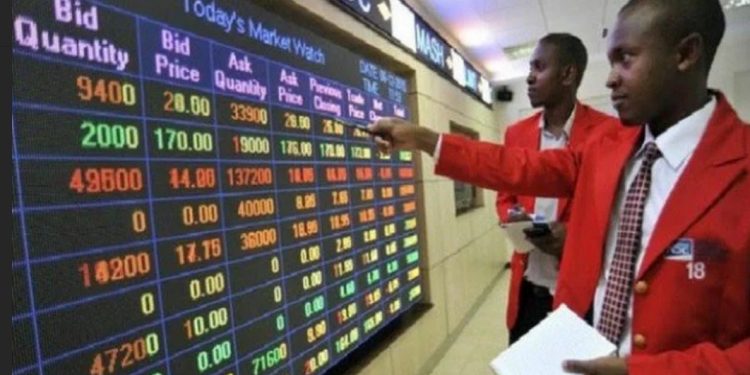By John Ikani
In a departure from the recent positive trend, the Nigerian stock market incurred a substantial loss of N130 billion on Monday, ending a six-day upward trajectory.
The market’s downturn, signalling a bearish start to the week, saw the All-Share Index decline by 0.33%, amounting to a 237-point drop, settling at 70,612.81.
Simultaneously, market capitalization mirrored the percentage decrease, closing at approximately N38.80 trillion, down from Friday’s N38.93 trillion.
Despite the setback, market breadth, a key indicator of investor sentiment, remained positive, with 25 gainers and 18 losers.
Notable gainers included Aluminium Extrusion Industries and RT Briscoe, each experiencing a 10% uptick to close at N7.15 and N0.66, respectively.
The newly-listed MeCure secured a 9.95% gain, closing at N4.31 per unit.
McNichols and DeapCap also performed well, gaining 9.84% and 9.68%, closing at N0.67 and N0.34, respectively.
Conversely, the list of losers featured JapaulGold, BUA Cement, Veritaskap, Universal Insurance, and Chams Plc, recording declines ranging from 3.85% to 9.09%.
JapaulGold, for instance, closed at N1.80, while BUA Cement and Veritaskap saw declines of 7.76% and 7.41%, settling at N98.70 and N0.25 per unit, respectively.
The total transaction volume for the day dipped to 474.38 million units from the previous 556.70 million, valued at N7.75 billion and exchanged in 7,630 deals.
The trading activity involved 123 stocks.
Fidelity Bank shares took centre stage with 94.05 million units traded, valued at N858.55 million in 426 deals.
Japaulgold followed with 65.98 million units exchanging hands for N120.98 million in 549 deals.
United Bank for Africa maintained its market presence, trading 54,923,670 million units worth N1.14 billion in 384 deals. Transnational Corporation Plc and Jaiz Bank also featured prominently on the volume chart.
While the market experienced a setback, analysts initially anticipated a sustained bullish momentum, driven by improved corporate earnings and the commencement of the dividend season.
The reality, however, unfolded differently, affirming the inherent unpredictability of financial markets.




































